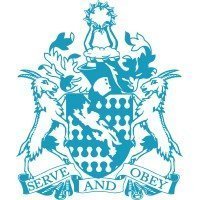Current and Former Co-Owner Committee members...
-
Recently Browsing 0 members
- No registered users viewing this page.
-
Topics
-
-
Popular Contributors
-
-
Latest posts...
-
17
Crime Thai Police Dismantle Scam Ring Targeting Australians, Arrest 13 Foreign Nationals
It works because greedy stupid people hand over money to greedy sneaky people who are clever enough to create the scam, but stupid enough to eventually get caught. A fool and his money are soon parted. Idiots are being born every day, so this (sort of thing) will never end. -
0
US inflation
Nov 2.7% May 2.4% So it's fallen 0.3% under Trump. No congrats from the left. Sorry for posting the truth. Cue negative emojis from the haters. -
1
Phuket Tuk-Tuk Driver Stunned by Tourists’ Lewd Behaviour
Shocked because the male's member was larger than his? Actually probably not as Russians are essentially asians, being descendants of the Mongols? Jealous because he wanted his turn more likely. -
7
My agent failed to inform me that I cannot file my 90 days report later than 7 days
I hope u not paid for this in advance. -
55
Report Retired Thai Nurse Scammed Out of 12 Million Baht in TikTok Romance Fraud
She has a full face mask on to protect her identity, how do you know what she looks like? -
17
Crime Thai Police Dismantle Scam Ring Targeting Australians, Arrest 13 Foreign Nationals
I got calls everyday in NZ from scammers, you tell them they are low life's and hang up then they ring back again I just use to say go and scam your mother and hang up
-
-
Popular in The Pub







.thumb.jpeg.d2d19a66404642fd9ff62d6262fd153e.jpeg)



.thumb.jpg.bc523c85a8d558dbc282dca7a2e602c9.jpg)

Recommended Posts
Create an account or sign in to comment
You need to be a member in order to leave a comment
Create an account
Sign up for a new account in our community. It's easy!
Register a new accountSign in
Already have an account? Sign in here.
Sign In Now